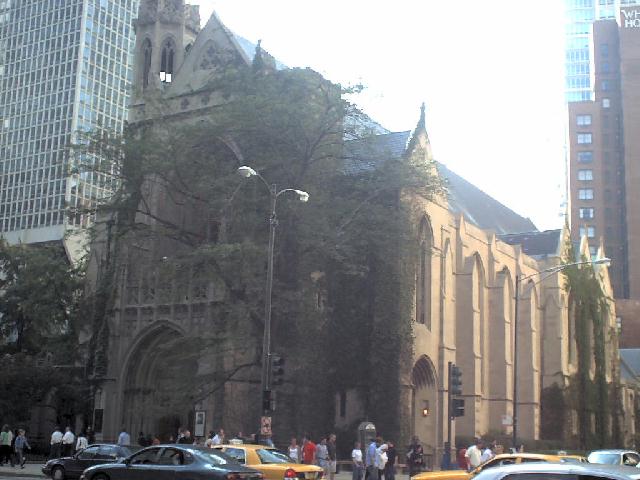
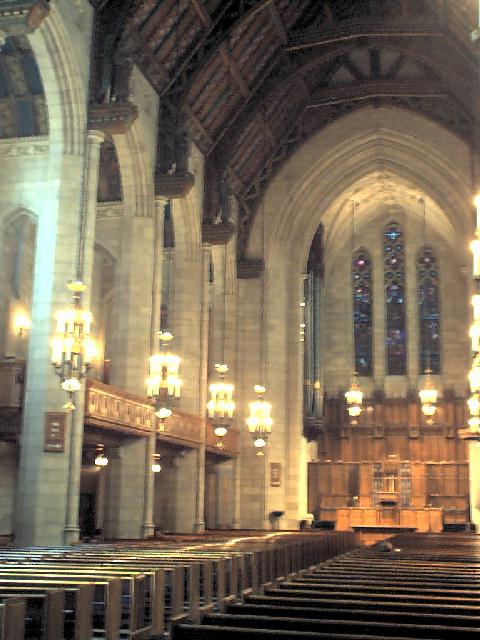 - -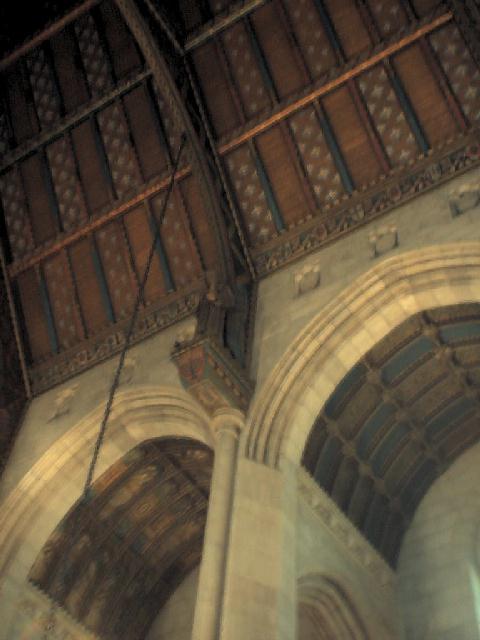
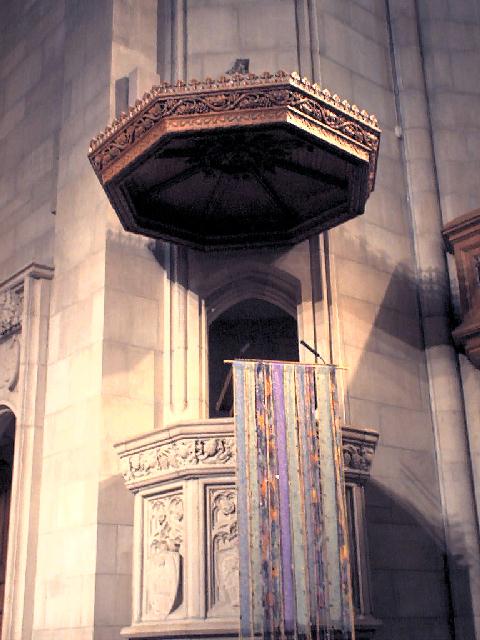
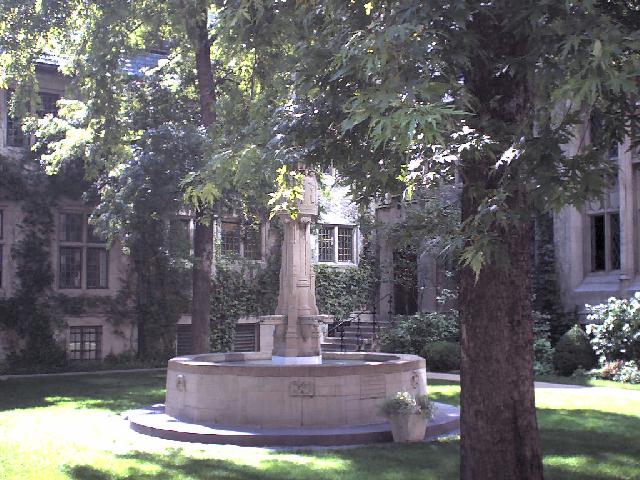 - -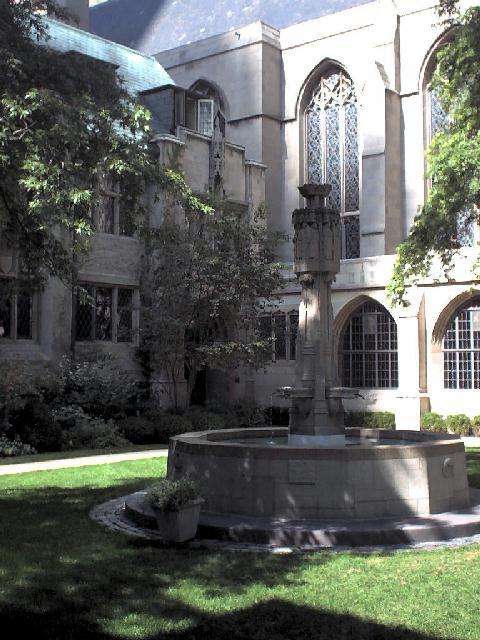
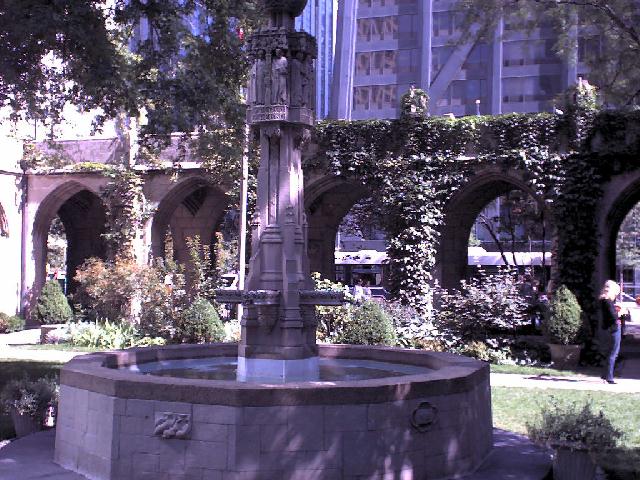
2003 NB |
|
My
first glimpse inside Fourth Presbyterian Church
came in the 1997 movie My
Best Friend's Wedding, in the scene where Cameron Diaz races down the
center aisle to congratulate the supposedly engaged Julia Roberts, her
squeals echoing throughout the venerable church's sanctuary.
Now that my
wife and I have begun regularly attending Fourth, I have taken a more deliberate
interest in studying the physical space that encompasses our Sunday morning
worship. Until I took the building tour and picked up the church's brochure
about its architecture, I remained, as do most worshipers, largely oblivious
to the symbolism of its physical features--the way the proportion of the
nave (the pews for laypeople) to the crammed chancel (the front area for
the clergy) reflects a Protestant rejection of church hierarchy and appreciation
for the participatory role of the laity in worship. Or the way the the
east
stained glass window, which was endowed by the family of Cyrus McCormick--the
inventor of the reaper and co-founder of Fourth's predecessor--bears the
images of Matthew, Mark, Luke and John in correspondence to Isaiah, Daniel,
Jeremiah, and Ezekiel, respectively, suggesting thematic links between
the work of each. Fourth's magnificent timber ceiling illustrates why the
sanctuary is called the nave. The root word is the same as that of navy,
and the shape and beams of the ceiling do indeed evoke the image of an
upside-down ship.
Fourth is not
only an essential outpost of the gospel to the proximate Cabrini-Green
housing projects, it is also welcome respite from the commercial onslaught
of Michigan Avenue, onto which its doors open. The church was built in
the nineteen-teens (by Ralph Adams Cram, the neo-Gothic revival architect
who designed St. John the Divine in Manhattan) on unwanted real estate
across from an open field; now the malls and high-rises of the “Magnificent
Mile” bear down on it from all sides. So its interior is a place to ponder
the immaterial amid the siren calls of materialism.
Still, I wonder
if Fourth itself is becoming something to look at, another stop for tourists
traversing its mall-lined block. Such is the fate of any site of a Hollywood
movie, especially in Chicago, with its inferiority complex over film fame.
Add to that the anonymity that comes with a church that size (and its high
proportion of visitors each week), and soon the magnificent building and
its historic institution detract attention from the task of forming a community
of believers. -NB
-More about
Fourth Presbyterian at its official
site, including its history
and West window.
-More
about Fourth and three essays about church architecture at my Books&Culture
weblog |